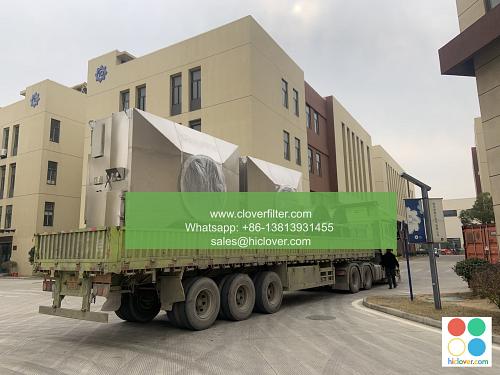Air Filter Production: Monitoring and Controlling Quality

The production of air filters is a complex process that requires careful monitoring and control to ensure the quality of the final product. Air filters are used in a variety of applications, including industrial filtration systems, HVAC systems, automotive filtration systems, and medical equipment. The quality of the air filter is critical in these applications, as it directly affects the performance and efficiency of the system.
Introduction to Air Filter Production
Air filter production involves several stages, including material selection, filter design, manufacturing, and testing. The materials used in air filter production include fiberglass, polyester, and activated carbon, among others. The filter design stage involves creating a filter that meets the specific requirements of the application, including filtration efficiency, pressure drop, and durability.
Monitoring and Controlling Quality in Air Filter Production
Monitoring and controlling quality in air filter production is crucial to ensure that the final product meets the required standards. This involves regular testing and inspection of the filters during the production process. The tests include filtration efficiency tests, pressure drop tests, and durability tests. The inspection involves visual examination of the filters to check for any defects or irregularities.
Application Areas of Air Filters
Air filters have a wide range of applications, including:
* Industrial filtration systems: Air filters are used in industrial settings to remove .pollutants and contaminants from the air. This includes dust, smoke, and chemical fumes.
* HVAC systems: Air filters are used in HVAC systems to improve indoor air quality and reduce energy consumption.
* Automotive filtration systems: Air filters are used in automotive systems to remove pollutants and contaminants from the air, improving engine performance and fuel efficiency.
* Medical equipment: Air filters are used in medical equipment to remove bacteria, viruses, and other microorganisms from the air, improving patient safety and reducing the risk of infection.
Conclusion
In conclusion, air filter production requires careful monitoring and control to ensure the quality of the final product. The application areas of air filters are diverse, and the quality of the filter directly affects the performance and efficiency of the system. By using high-quality materials, advanced manufacturing techniques, and rigorous testing, manufacturers can produce air filters that meet the required standards, improving indoor air quality, engine performance, and patient safety. It seems like you forgot to include the prompt. Please go ahead and provide the prompt, and I’ll be happy to help!

